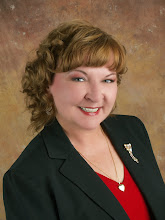Years ago a friend of mine made some biscuits. They looked really terrific when he placed them on the table, hot and steamy. Eagerly I buttered one up and bit into it with glee. Next thing I knew I was spitting it out. See he had read the recipe wrong, it called for three teaspoons of baking soda, he had put in three tablespoons of baking soda. All the lovely biscuits met their end in the trash.
It’s those details that will get ya every time and leave a lousy taste in your mouth no matter how much you butter them up.
Like the Communications, Opportunity, Promotion, and Enhancement Act of 2006 or COPE. It sounds like it could be a really good deal for some Public, Educational and Government (PEG) access centers and the communities in which they serve. The bill says local government will get a 5% fee from the national franchise plus a 1% fee to go directly to PEG. There are indeed towns that don’t get a full 5% and there are indeed PEG operations that receive no grants or pass-throughs, and certain state legislation recently passed has taken a bite out of those that do. But, and it’s a big but, that 5% will not be a full 5% once all the exclusions are included.
Like On-Demand for instance, a rapidly growing revenue stream for the cable ops.
Looming in this discussion is the matter of bundled services. If the cable operator provides caller i.d. through your television set can he claim that the money he charges for caller i.d. be deducted from the money he charges for video delivery and thereby instead of it being 5% of $50 per month, it is now 5% of $42 a month because he charges $8 for caller i.d.? Remember anything having to do with telephony is not a video service and therefore not subject to the 5%.
I’ve already been engaged in local communities where the cable operator has its own definition of gross receipts. Oops! We forgot advertising or home shopping! Well, we never meant to pay on installation and you can’t say that’s part of our gross receipts.
Never mind the frequency at which cable operators underpay and don’t make up the deficiency until a franchise fee review has been done and even then they put up a stink. I know one community where they found an $80,000 shortfall and Time Warner says it’s only a $10,000 shortfall. Now what? Guess you’ll have to go to the FCC to get a decision. Holding your breath is not a good idea given the FCC has absolutely no experience in franchise fee reviews. Or maybe the FCC is going to expand its building at the Portals to put in a whole new accounting division. And when it comes down to a definition debate you can bet Verizon will have already beaten locals to the punch with sweet nothings whispered into the ears of the FCC staffers. But even if they don’t the bill contains no audit power for local government.
Sorry.
The 1% sounds really cool if you’re getting nothing. However, there are plenty of communities that have a dollar or more being collected for PEG support. 1% would slash their PEG funding in half or even by two-thirds. Even t’were the PEGs to get their 1% they may be faced with local government who now says “Hey…you got your funding, you don’t need anything from us. And besides our revenues are down because that national 5% wasn’t really 5% after all.”
It’s the vulgar details that eventually get us all. Taking the 5% and 1% at face value is a losing proposition. COPE is a biscuit that ain’t worth eating and needs to be trashed, no amount of butter or jam or sugar will make it go down right and at the end of the day, local communities and PEG access will be left with a sour stomach.
The National Association of Telecommunications Officers and Advisors (NATOA) has put out an action alert on COPE. Go to www.natoa.org click on Policy/Advocacy. You will see their action alert, talking points by the municipal associations and a list of congressional contacts.




